1. The Fresh Prince of Bel-Air
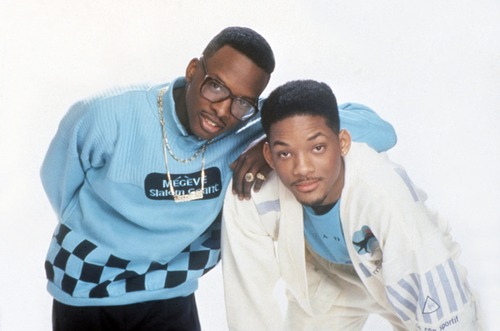
Few sitcoms have had the cultural impact of The Fresh Prince of Bel-Air. Airing from 1990 to 1996, this show introduced us to a young Will Smith playing a fictionalized version of himself. It masterfully blended comedy with heartfelt moments, addressing issues like racial profiling, class disparities, and family bonds. Who could forget Uncle Phil’s powerful monologues or the iconic “Why don’t he want me, man?” scene? The Banks family’s luxurious Bel-Air mansion wasn’t just a backdrop—it was a space where Black excellence thrived.
The series wasn’t just entertaining; it was groundbreaking in its portrayal of a wealthy, successful Black family. It showed that Black stories could appeal to audiences across racial lines while staying authentic. The show’s humor, fashion, and music remain timeless, with Carlton’s quirky dance still being a meme-worthy moment. Even decades later, its themes and lessons resonate with new generations. For more insight into its cultural impact, check out this article from The Atlantic.
2. Martin

Martin is the epitome of ’90s sitcom hilarity. Premiering in 1992, this Detroit-set comedy starred Martin Lawrence as a charismatic and sometimes outlandish radio DJ. His on-screen chemistry with Tisha Campbell, who played his girlfriend Gina, made for some of TV’s most memorable moments. With its rapid-fire humor and physical comedy, Martin showcased Lawrence’s comedic genius. Fans still quote lines like “Damn, Gina!” and imitate the antics of side characters like Sheneneh and Jerome.
But beyond the laughs, Martin was a celebration of love, friendship, and ambition in a Black urban setting. The show’s exploration of relationships—from Martin and Gina’s romance to his friendships with Tommy, Cole, and Pam—was refreshingly authentic. It’s no wonder Martin remains a cultural staple, continuing to influence comedy today. As Vulture highlights, it’s a series that helped redefine Black sitcoms for a new era.
3. Good Times
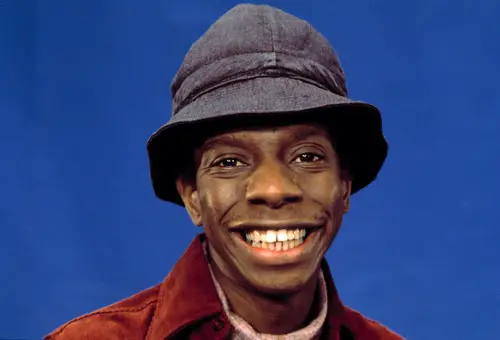
As one of the first sitcoms to focus on a working-class Black family, Good Times broke new ground in 1974. Set in a Chicago housing project, the show followed the Evans family as they navigated the challenges of poverty. James and Florida Evans, played by John Amos and Esther Rolle, anchored the series with their warmth and resilience. It wasn’t afraid to tackle heavy issues like systemic racism, unemployment, and crime, all while delivering plenty of laughs.
Of course, J.J.’s catchphrase “Dy-no-mite!” became a cultural phenomenon. But what made Good Times truly special was its ability to balance humor with real-life struggles. The show’s candid portrayal of Black life in the ’70s was both groundbreaking and relatable. For a deeper dive into the show’s legacy, see this feature by Smithsonian Magazine.
4. The Cosby Show
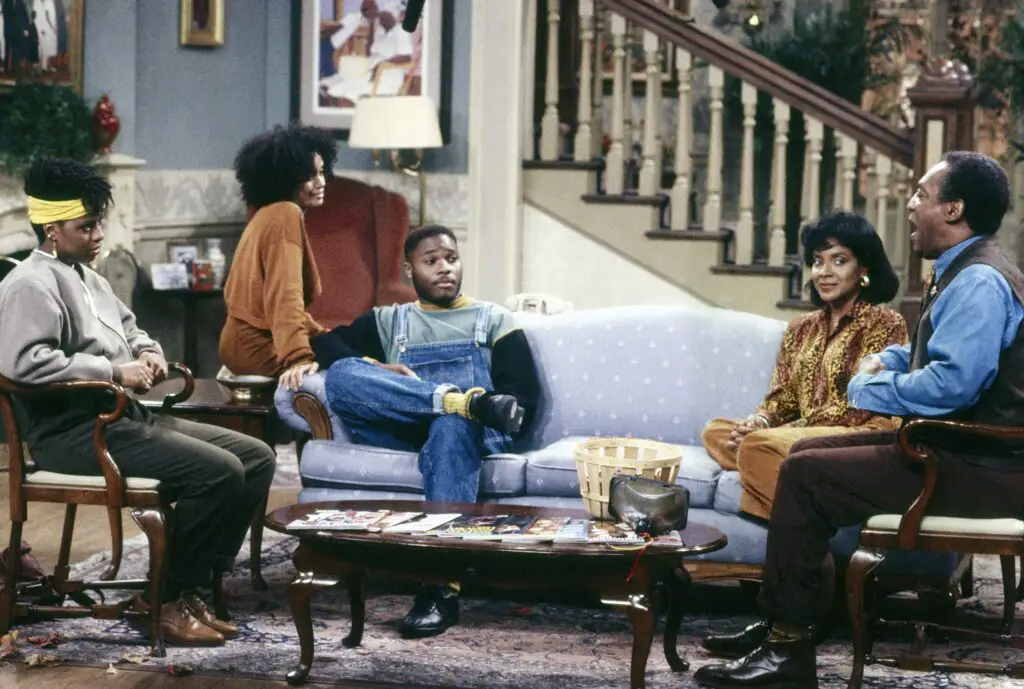
No discussion of Black sitcoms is complete without The Cosby Show. Debuting in 1984, it redefined how Black families were portrayed on television. The Huxtables, led by Cliff and Clair, were a successful, educated family living in a Brooklyn brownstone. The show was a refreshing departure from earlier portrayals of Black families struggling with poverty. Instead, it celebrated Black professional success while maintaining universal appeal.
With its witty writing, lovable characters, and wholesome family dynamics, The Cosby Show dominated the ratings for much of the ’80s. It paved the way for other shows featuring affluent Black families, like The Fresh Prince of Bel-Air. Despite controversies surrounding its lead actor, the show’s cultural impact remains undeniable. NPR’s retrospective provides valuable context on its significance.
5. Living Single
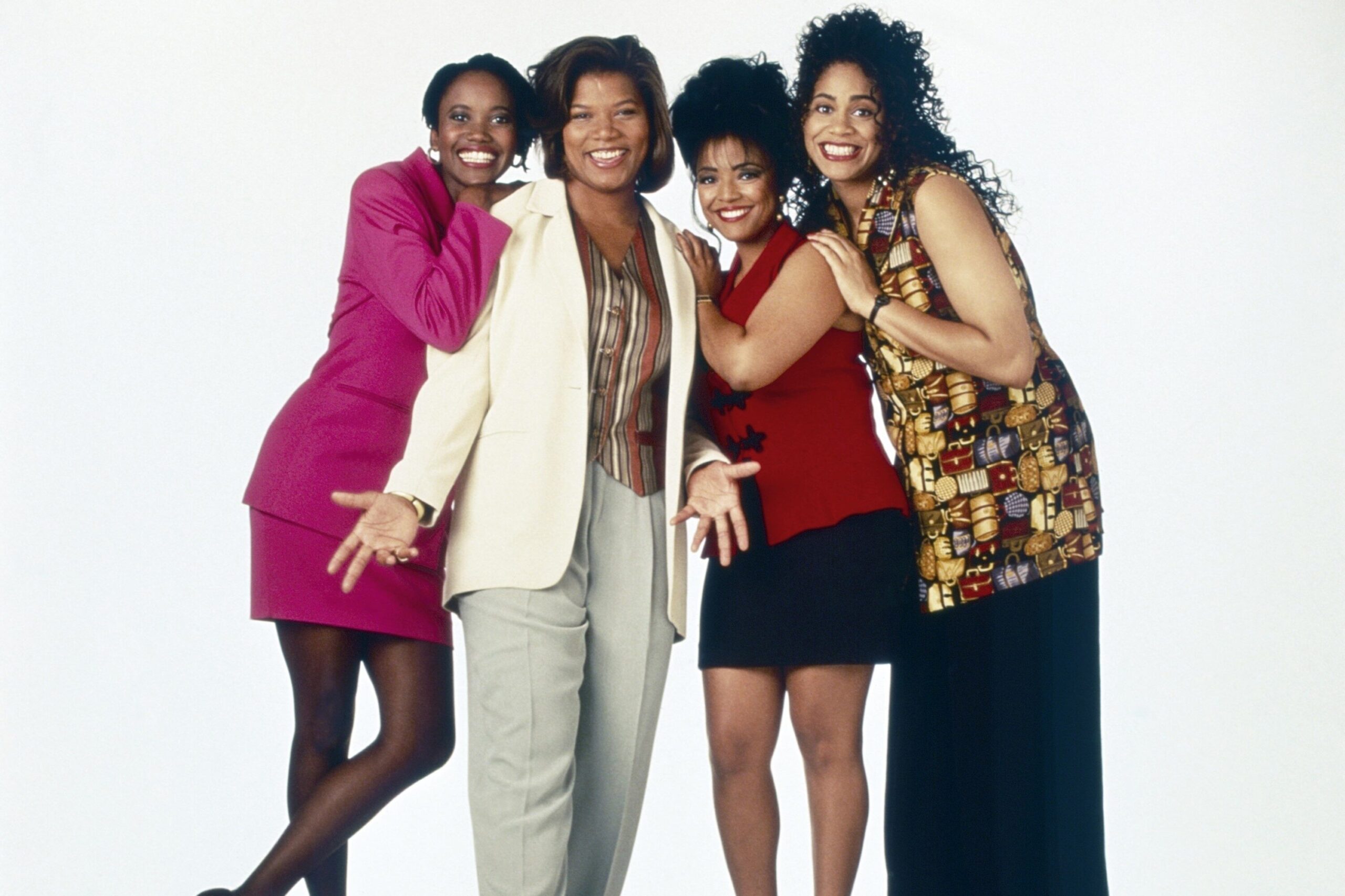
Before Friends, there was Living Single. This iconic show premiered in 1993 and followed the lives of six young Black professionals navigating love, work, and friendship in Brooklyn. Queen Latifah’s Khadijah was a standout as the ambitious editor of an urban magazine. The dynamic among the women—Khadijah, Regine, Synclaire, and Maxine—was the heart of the show, with their humor and camaraderie driving each episode.
Living Single was groundbreaking in its focus on successful Black women as the main characters, showcasing their complexities and ambitions. The men, Kyle and Overton, provided plenty of laughs and balance to the group dynamic. Its influence on subsequent ensemble sitcoms is undeniable, making it a pioneer in its genre. Check out this piece by Essence for more on its trailblazing legacy.
6. A Different World
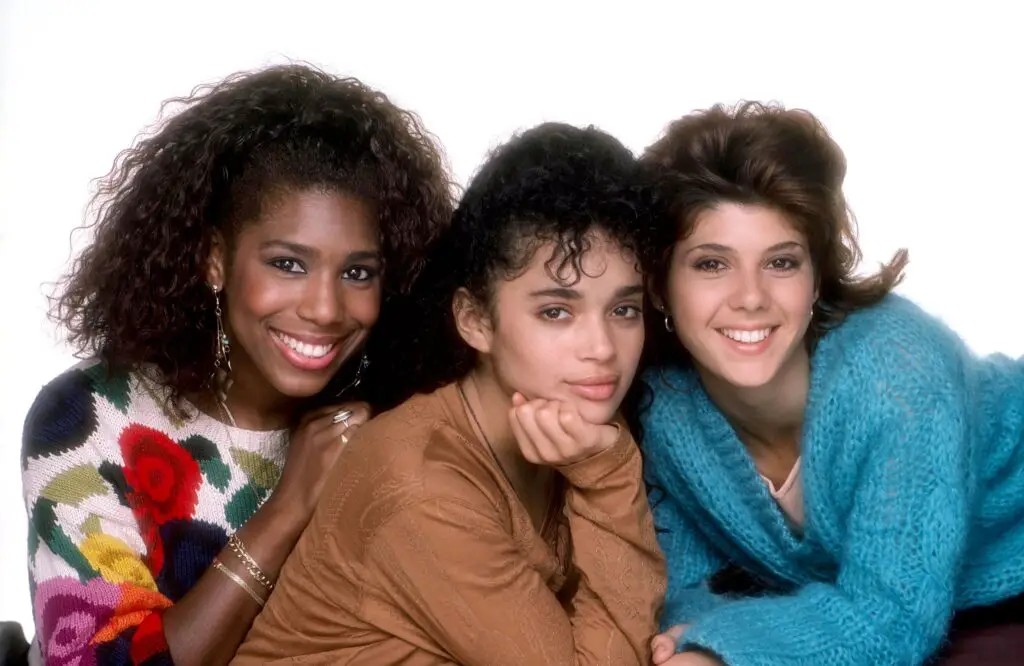
A spinoff of The Cosby Show, A Different World took viewers to the fictional Hillman College, a historically Black university. Premiering in 1987, it tackled topics like racial identity, sexism, and even HIV/AIDS with nuance and humor. The evolution of Denise Huxtable’s character, and later the dynamic between Whitley and Dwayne, gave the show its emotional core.
More than just a sitcom, A Different World became a cultural touchstone for HBCUs and Black college life. It inspired countless young viewers to pursue higher education. The series’ ability to balance comedy with critical social issues was unparalleled, making it as relevant today as it was in the ‘80s. The HuffPost reflects on its lasting impact on Black culture and education.
7. Sanford and Son
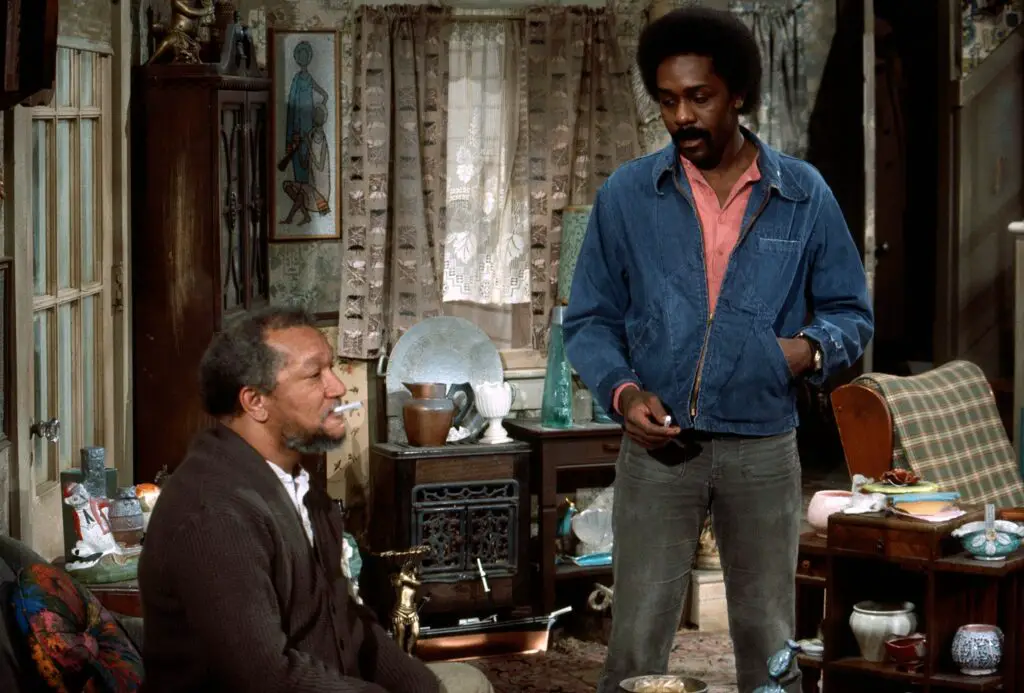
Redd Foxx’s Sanford and Son was a comedic gem that aired from 1972 to 1977. Centered on the hilarious antics of Fred Sanford, a junk dealer in Watts, Los Angeles, the show was a masterclass in sitcom timing. Foxx’s biting humor and Lamont’s straight-man role created an unforgettable father-son duo. Fred’s dramatic “I’m coming, Elizabeth!” remains one of TV’s most iconic catchphrases.
While the show leaned heavily on humor, it also subtly addressed racial and social issues of its time. Its popularity proved that Black-led sitcoms could dominate prime-time television. Even now, Sanford and Son remains a classic, revered for its sharp wit and memorable performances. For more about its influence, visit this TV Guide tribute.
8. Girlfriends
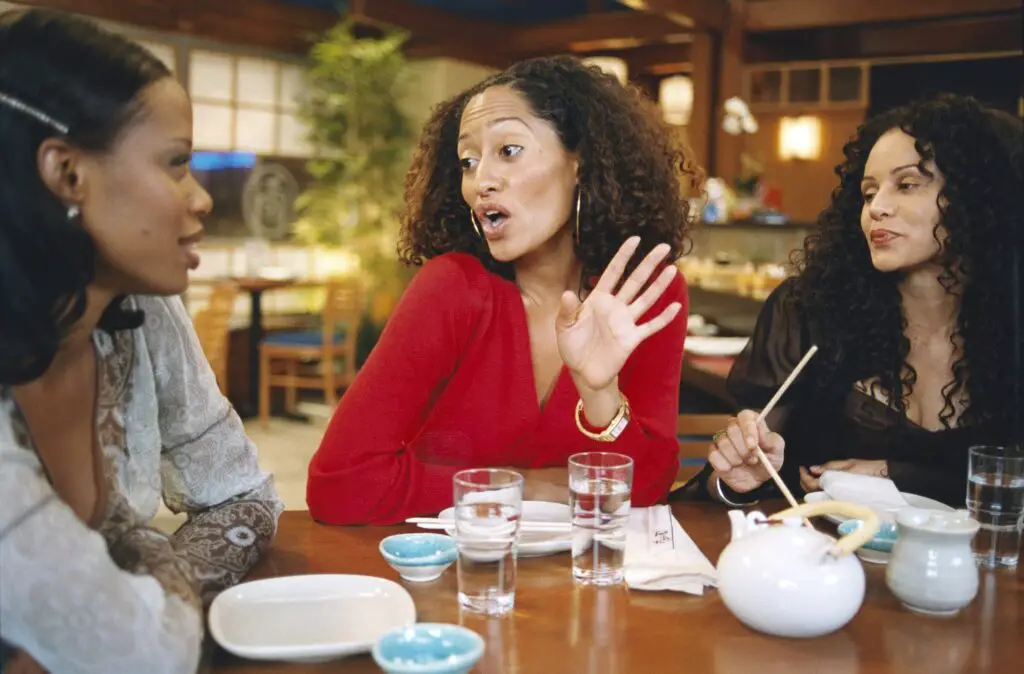
Long before Insecure, there was Girlfriends. This early-2000s sitcom, created by Mara Brock Akil, focused on the lives of four Black women navigating their careers and relationships in Los Angeles. Joan, Maya, Lynn, and Toni each brought a unique perspective to the series, making it relatable to a wide audience. The show’s exploration of themes like friendship, mental health, and financial independence was ahead of its time.
What set Girlfriends apart was its authenticity. It delved into the complexities of being a Black woman in America with humor and heart. The chemistry among the cast made every episode a joy to watch, and its legacy continues to influence shows today. For an in-depth look at its cultural impact, check out this article by BET.
9. Family Matters
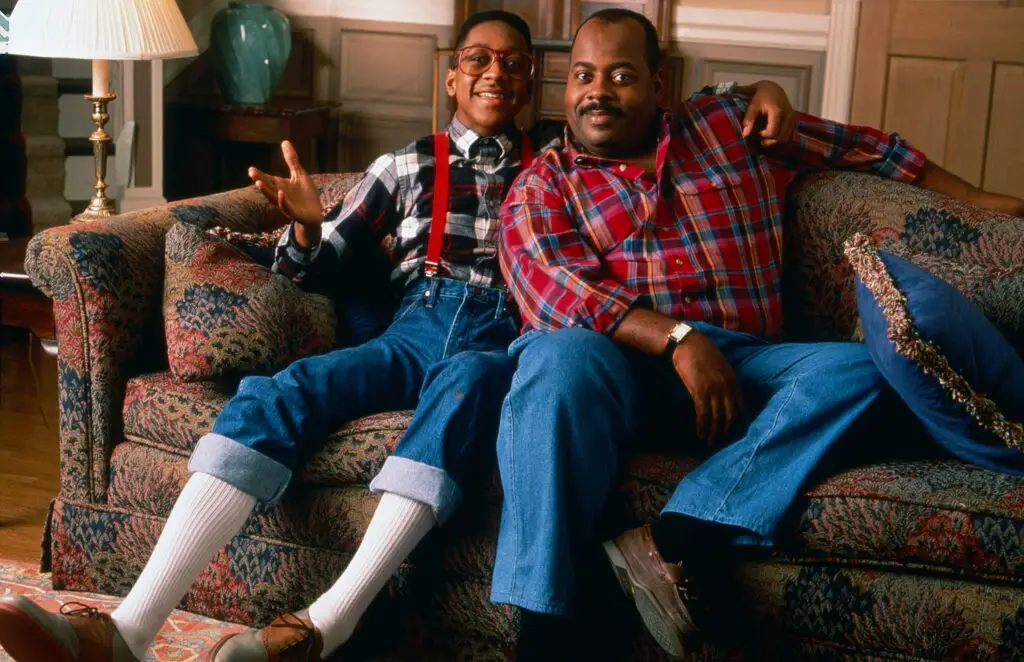
Who could forget the Winslow family and their lovable, nerdy neighbor, Steve Urkel? Family Matters premiered in 1989 and quickly became one of the longest-running Black sitcoms in TV history. While initially focusing on the Winslow family’s everyday life, Urkel’s antics soon took center stage. His catchphrases like “Did I do that?” became iconic.
Beyond the laughs, the show tackled important issues like gun violence, racism, and peer pressure. Its mix of humor and heart made it a favorite for families across the country. Even years later, its themes and characters hold a special place in viewers’ hearts. For more on its enduring appeal, see this PopSugar feature.
10. Black-ish
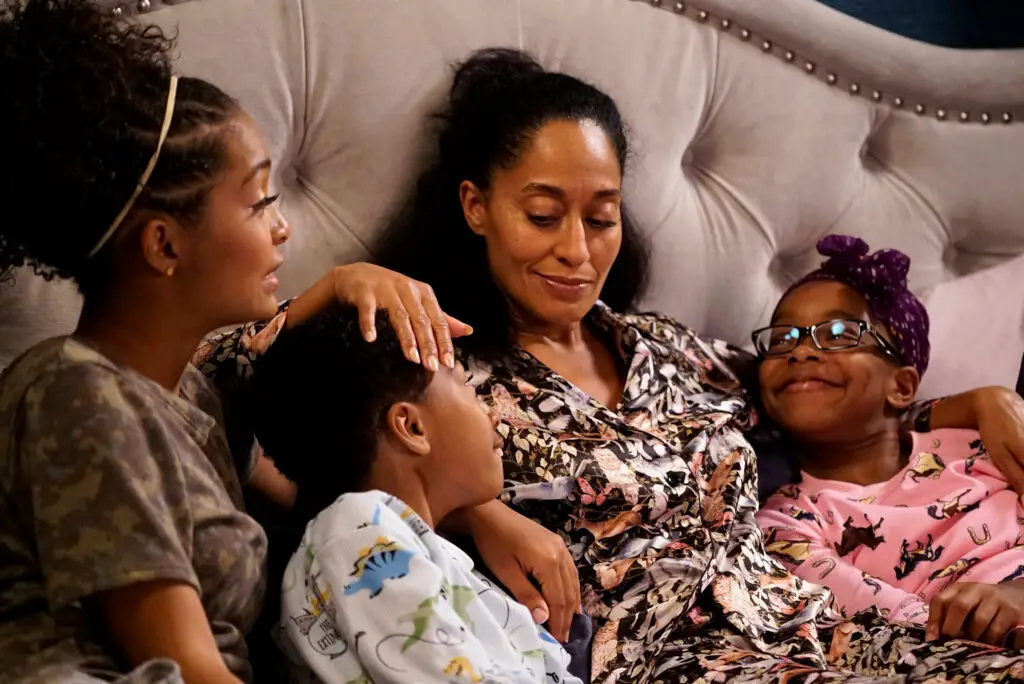
Black-ish brought a fresh perspective to the modern Black family when it premiered in 2014. Starring Anthony Anderson and Tracee Ellis Ross, the show explores the challenges of raising children in a predominantly white, upper-middle-class environment. Its clever writing and sharp humor tackle topics like cultural identity, systemic racism, and colorism.
The show’s balance of humor and thought-provoking themes has earned it critical acclaim and multiple awards. With spin-offs like Grown-ish and Mixed-ish, its influence extends far beyond its original run. For more on its groundbreaking approach, read this review by The New York Times.
11. The Jeffersons
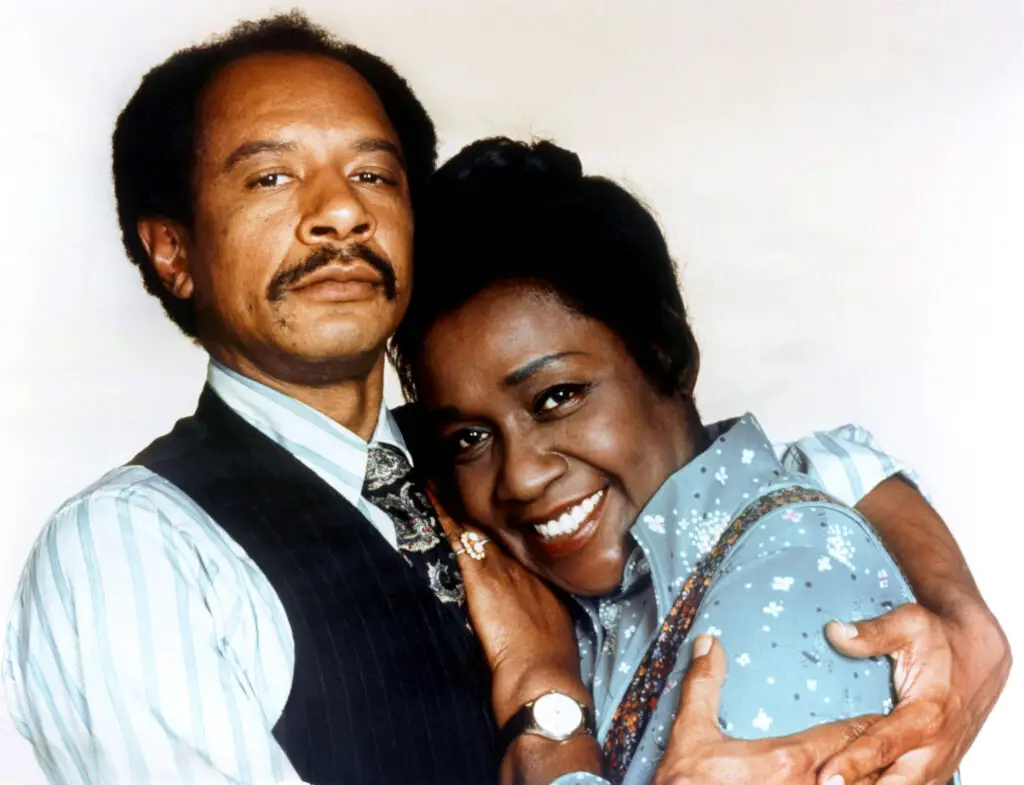
A spinoff of All in the Family, The Jeffersons was a trailblazer in its own right. Airing from 1975 to 1985, it followed George and Louise Jefferson as they “moved on up” to a deluxe apartment in the sky. The show’s humor and sharp social commentary tackled topics like racism, interracial relationships, and economic inequality.
With its catchy theme song and unforgettable characters, The Jeffersons remains a beloved classic. George’s brash personality and Louise’s grace made for a perfect comedic balance. It was one of the longest-running sitcoms of its time, proving that Black-led shows could achieve mainstream success. Time’s retrospective dives deeper into its legacy.
12. Everybody Hates Chris
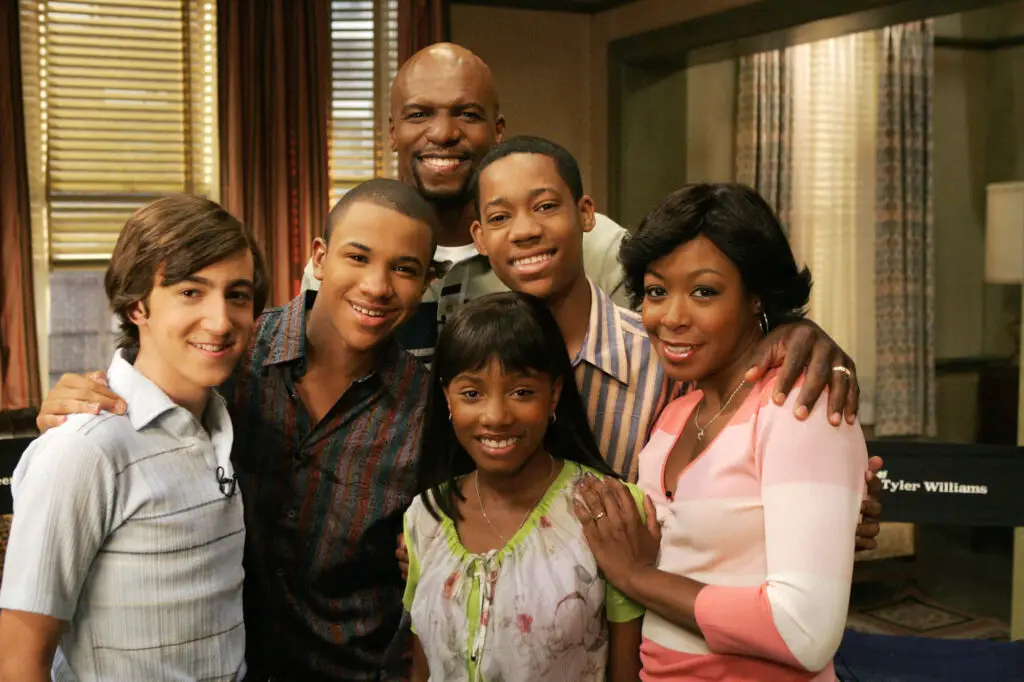
Inspired by Chris Rock’s teenage years, Everybody Hates Chris brought a unique voice to the sitcom world. Set in the 1980s, it humorously depicted Chris’s experiences as a Black teen in a predominantly white school. The show’s narration, provided by Rock himself, added a layer of wit and authenticity that set it apart.
While the comedy was sharp, the show didn’t shy away from addressing serious issues like bullying, prejudice, and economic struggles. Its blend of humor and heartfelt moments made it a standout in the mid-2000s. Even today, its relatability and charm make it a must-watch. Learn more about its creation in this Hollywood Reporter feature.
